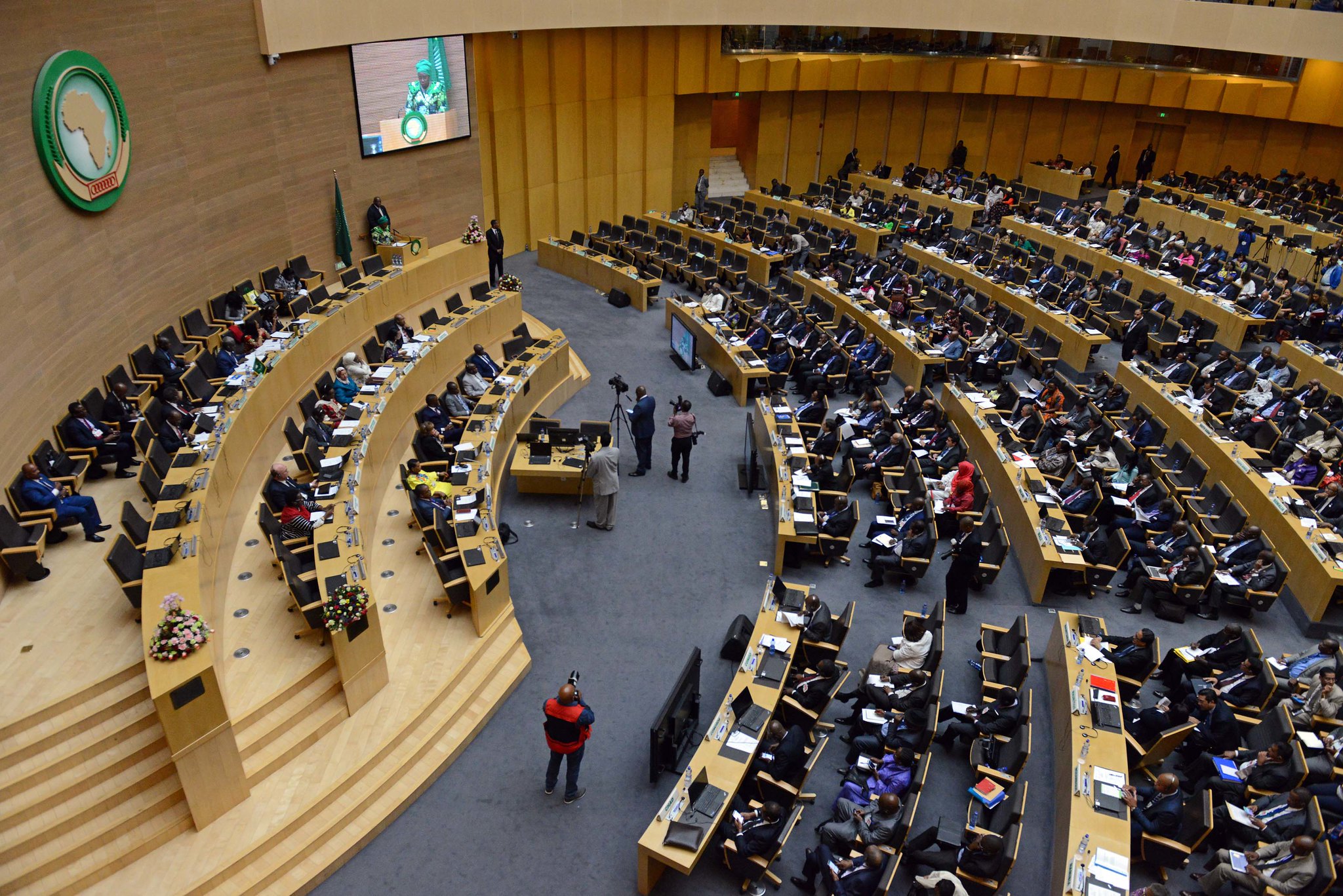When Leaders Override Term Limits, Democracy Grinds to a Halt
The world should treat such power grabs like a coup d’état.

Published by The Lawfare Institute
in Cooperation With

Before the end of October, Alpha Condé, the 82-year-old president of Guinea, and Alassane Ouattara, the 78-year-old president of Côte d’Ivoire, will have contested elections to grant them a third term in office. Each has found a way to circumvent constitutional rules that limit presidents to two terms. Guinea’s election was held on Oct. 18 and Condé declared victorious on Oct. 24; Ouattara is likely heading for the same result following elections on Oct. 31. More than 20 Guineans have been killed in postelection fighting, and there are grave concerns about the risk of violence in Côte d’Ivoire.
Over the past two decades, dozens of leaders around the world have sought to evade term limits and extend their hold on power. African heads of state are most often seen as the culprits—since 2015, leaders of 13 African countries have engineered changes to term limits—but the trend has played out in every region. The avatars of modern authoritarianism, Russian President Vladimir Putin and Chinese President Xi Jinping, each recently changed or removed term limits. Chief executives in countries as diverse as Azerbaijan, Bolivia and Iraq have done the same. Even in the United States, President Trump has mused openly about seeking a third term in office, despite constitutional constraints.
This widespread refusal to play by the rules has contributed to a 14-year period of global democratic decline. For democracy to regain its footing, term limits need to be treated as a fundamental political norm. The arguments made by lingering incumbents—that citizens are demanding another term, that a longer tenure will ensure security and stability, or that changes to the rules are the result of legal and inclusive processes—are often a thin disguise for growing authoritarianism. The community of democratic nations, including the United States, must use the tools at their disposal to vigorously defend this crucial safeguard.
The Benefits of Term Limits
A head of state’s second decade in power is rarely better than the first, and countries with leaders in their third, fourth or fifth decade in power are almost universally authoritarian. The cult of personality that develops around long-serving leaders stifles political competition and drives potential successors out of politics. Competent public servants are similarly forced out of government, or grow frustrated and choose to leave; they are replaced by sycophantic allies of the leader. The risk of violence grows as citizens reach the conclusion that change and progress will not come through the ballot box. Resentment toward the ruling elite—often a single political party or members of the incumbent’s ethnic group—grows, as does the likelihood of retribution when a leadership change finally occurs.
The contrast with a system featuring regular, institutionalized rotations of power could not be more stark. Open competition for top positions encourages political participation and the development of new parties and leaders, while proving that no officeholder is irreplaceable. Change at the helm of government and throughout its institutions shows that a diverse array of citizens can competently serve the public and refreshes the vitality of the state. Repeated transfers of power demonstrate that change through elections is possible, discouraging coups and other unconstitutional efforts to seize power and promoting peace and stability. As former U.S. diplomat Gideon Maltz points out, leadership rotation is also a brake on corruption, because “businesses tend to invest much less in buying influence in countries with party alternation,” and can rein in abuses by incumbents, since “only a leader facing effective term limits has any chance of attaching sufficient costs to future prosecution to be deterred from committing crimes while president.”
For these reasons, the architects of constitutions have frequently included term limits, which are broadly popular among citizens. In Africa, for instance, surveys by Afrobarometer, a pan-African research institution, consistently find that approximately three-quarters of Africans support two-term limits. But leaders intent on staying in office longer show little regard for public opinion—in an on-the-record meeting in the fall of 2019, President Condé said that polling in Africa “can’t be trusted”—and they typically use one of several tools to change the rules.
Frequently, a pliant legislature, filled with lawmakers from the ruling party, passes legislation to change term limits, as was the case in Sri Lanka, Ecuador and Cameroon. Another common method is a referendum in which citizens vote, often in a tightly controlled process without open public debate, on proposed changes to the constitution, as happened in Venezuela, Turkey and Rwanda. In still other instances, the judiciary, populated by judges loyal to the president, hands down rulings that allow the incumbents to extend their tenure, as was the case in Burundi, Honduras and Iraq. Occasionally leaders simply issue a decree allowing them to remain in office, though the fact that this is a rarer tactic suggests a preference to maintain at least the appearance of respect for the rule of law.
These efforts don’t always succeed. In Paraguay, Burkina Faso, Nigeria and elsewhere, leaders who tried to prolong their tenure were rebuffed by a combination of citizen resistance and courts or legislatures that refused to bend to their will. As protest movements around the globe gain momentum and show results, incumbents are forced to be increasingly savvy—or increasingly brutal—to extend their time in office.
In Guinea and Côte d’Ivoire, the circumstances differ but the results may be similarly destabilizing. President Condé removed the head of Guinea’s Constitutional Court and oversaw a constitutional referendum in March that was boycotted by the opposition. According to the official results, some 90 percent of the participating voters endorsed changes to the constitution that effectively reset the clock on term limits, allowing Condé to serve as many as 12 more years. In the run-up to the election, at least 50 people were killed as security forces cracked down on protesters and the political opposition.
President Ouattara, who helped stabilize Côte d’Ivoire after elections in 2010 sparked a civil war that led to approximately 3,000 deaths, originally indicated that he would abide by term limits and support a handpicked successor. When that successor died of a heart attack, Ouattara changed course and decided to run himself, arguing that the adoption of a new constitution in 2016 had reset term limits. Côte d’Ivoire’s Constitutional Council validated Ouattara’s decision while blocking two of his strongest competitors from running, setting up an explosive dynamic that could plunge the country back into violence.
How to Deter Rule Breaking
Leaders who evade term limits have faced few consequences beyond occasional criticism couched in diplomatic niceties. To change the calculations they make, states interested in expanding global democratic governance should establish a clear set of deterrents. The United States can jump-start progress by committing to a new policy that considers changes to term limits that allow incumbent leaders to extend their time in office to be, essentially, a coup against the nation’s constitution. Like a military coup, the evasion of term limits is an usurpation of power that denies citizens an open political competition and the many benefits of leadership rotation.
U.S. law requires the suspension of many forms of assistance to countries where the military has overthrown a duly elected government. As a matter of policy, the United States should adopt a similar approach when leaders change the term limit rules for themselves: These actions should trigger an automatic across-the-board review of all assistance to the country, and elements of that assistance that benefit the chief executive and the upper echelons of government should be suspended. The State Department should lead the review, identifying nonhumanitarian assistance that may be important to the leader, such as access to preferential trade arrangements, investment in infrastructure, or sales of arms and other forms of military cooperation. Senior policymakers should then decide on an appropriate combination of benefits to suspend. The secretary of state should publicly announce this policy so that it can serve as a deterrent, while Congress should consider enacting legislation to turn the policy into law.
As with any policy, there will not be perfect consistency at the outset. Critics will point out that this approach ignores leaders whose countries didn’t have term limits to begin with or have recently done away with them. They’ll note that the policy doesn’t apply to monarchies, or that a few indisputably democratic leaders, such as German Chancellor Angela Merkel, have been in office for more than two terms. But the broader objective is to build momentum toward a global norm of regular, predictable leadership rotation and to put a spotlight on those who openly flout that norm against the will of their population. (Afrobarometer polling shows that 76 percent of Guineans support a two-term limit, as do 78 percent of Ivoirians.)
The United States should not go it alone. It should encourage democratic allies to adopt a similar policy of review and suspension of assistance, and work to coordinate those decisions for maximum impact and attention. Nor should this initiative be imposed only from afar. Regional organizations need to more closely adhere to their own principles; for example, the African Union’s African Charter on Democracy, Elections and Governance says that “any amendment or revision of the constitution or legal instruments, which is an infringement on the principles of democratic change of government,” should “draw appropriate sanctions by the Union.” The African Union has become quick to act in response to military coups, such as recently in Mali, whose membership was swiftly suspended, but the bloc has been silent regarding coups against the constitution. In 2015, the West African regional grouping, known as the Economic Community of West African States, came close to instituting a two-term limit for all member states, but now it too has little to say about potential third terms in its region.
From Guinea and Côte d’Ivoire to the United States, leaders who place their hold on power above the interests of their citizens are inverting the basic principles of democracy and putting their countries in danger. After years of global democratic decline, now is the time to reinforce the regular leadership rotation that term limits ensure.





